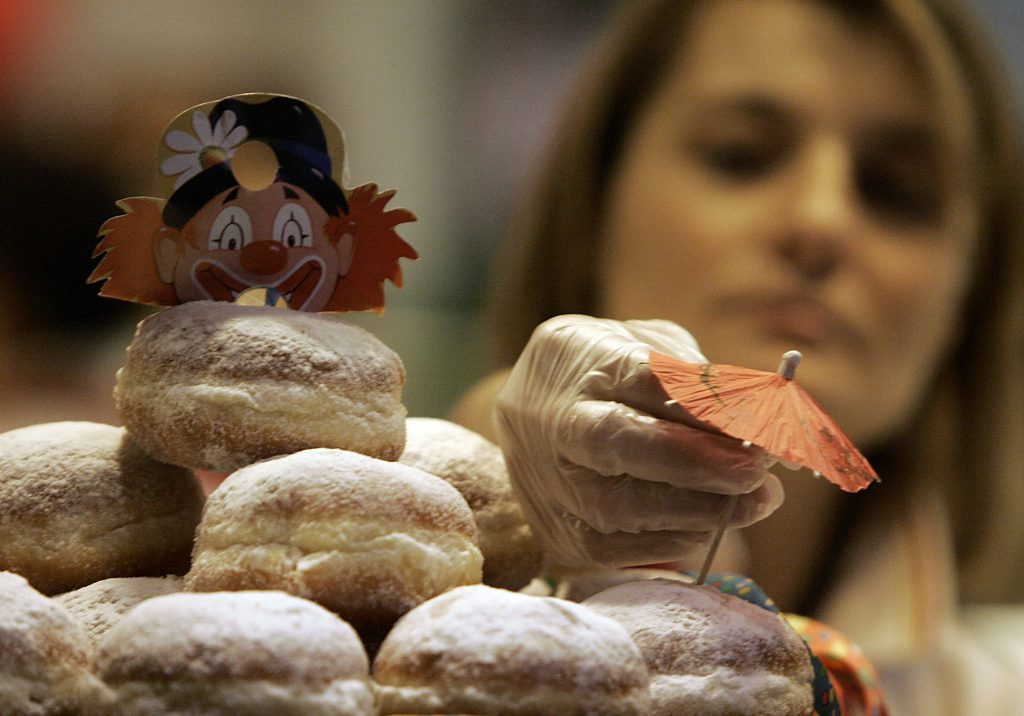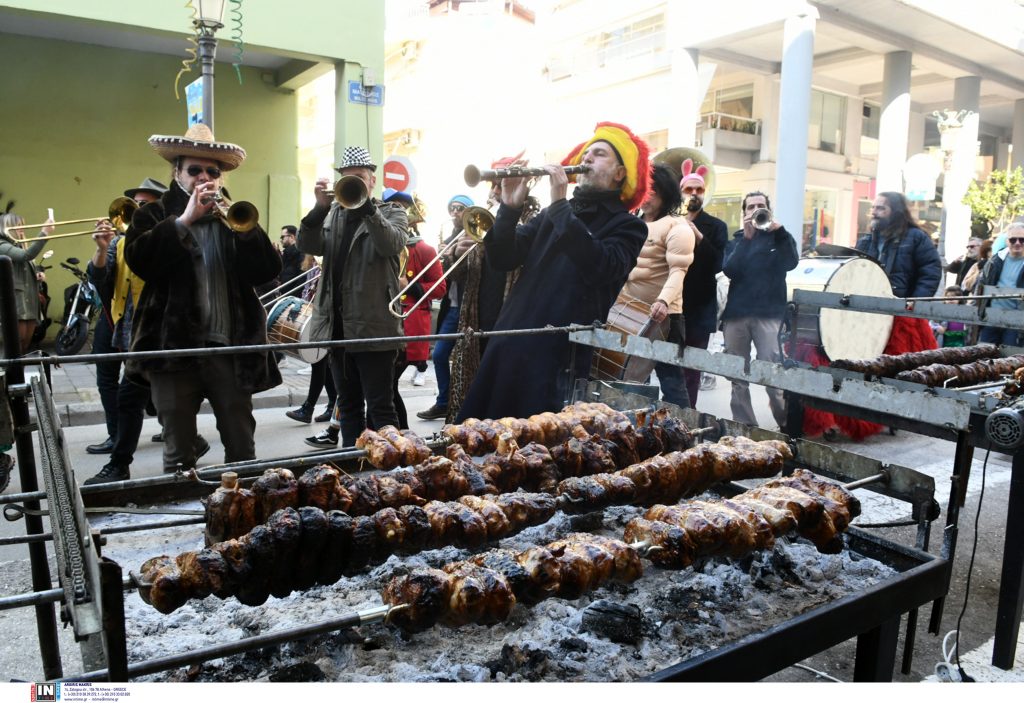Thursday marks Tsiknopempti, one of Greece’s most cherished traditions. Also known as “Smoky Thursday” or “Meat Thursday,” on this day Greeks indulge in grilled meats before the fasting period of Lent begins. As the scent of sizzling lamb, souvlaki, and sausages fills the air, streets across Greece come to life with festivities, family gatherings, and communal feasts.
But unbeknownst to many Greeks, Tsiknopempti shares striking similarities with pre-Lent celebrations around the world, including the widely recognized “Fat Tuesday” or Mardi Gras in the United States. Just as Greeks take the opportunity to enjoy their last major meat-heavy meal before the 40 days of fasting, Americans indulge in sweets, rich foods, and rowdy celebration in anticipation of the self-restraint required during Lent.
Mardi Gras, French for “Fat Tuesday”, originated in France and was brought to the U.S. by French settlers in New Orleans in the early 18th century. Over the centuries, it evolved into a vibrant, large-scale festival featuring parades, masquerades, and extravagant parties, with attendees wearing colorful beads and costumes. The day serves as a final, indulgent farewell to vices, whether in the form of food, drink, or entertainment, before the solemn period of Lent.
Beyond Greece and the United States, many cultures have their own versions of a pre-Lent feast. Italy celebrates “Carnevale,” a festival known for its elaborate masks, parades, and indulgent feasting. In Brazil, “Carnaval” takes the form of electrifying samba parades, dazzling costumes, and endless dancing. Germany, too, has “Fastnacht,” a day for consuming doughnuts and other rich foods. Even Polish communities worldwide observe “Tłusty Czwartek,” or Fat Thursday, where people enjoy pączki (decadent, jelly-filled doughnuts).

Krapfen, auch Berliner oder Kreppel genannt, werden am Montag 16. Februar 2009, in einer Baeckerei in Duesseldorf mit Karnevals Dekoration verziert. Wieso isst man zu Fastnacht eigentlich Kreppel? Jedes Jahr stuerzen sich in Deutschland Millionen Narren und Jecken in die “fuenfte Jahreszeit”. Waehrend manche dabei auf die alten Traditionen pochen, geht es vor allem den Juengeren vorwiegend ums ausgelassene Feiern. Die Wurzeln des wilden Treibens sind vielen gar nicht mehr bewusst. (AP Photo/Frank Augstein) —
An employee prepares donuts, a traditional carnival pastry in Germany, at a bakery in Duesseldorf, western Germany, on Monday, Feb. 16,2009. (AP Photo/Frank Augstein)
Despite its focus on food and festivity, Tsiknopempti and its similar counterparts are more than just an excuse to eat meat and indulge. It reflects Greek Orthodox culture’s emphasis on the importance of family, community, and the balance between indulgence and self-discipline. This means that as Greeks gather around their grills on Thursday, sharing laughter, food, and music, they partake in a ritual that dates back centuries and, in its essence, is shared by people across the world.





